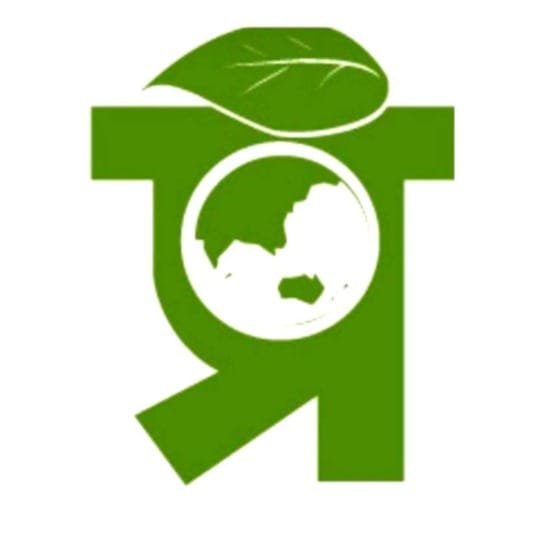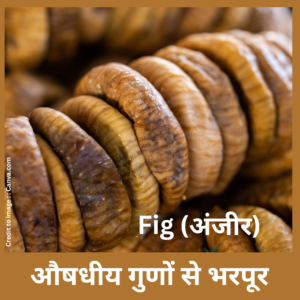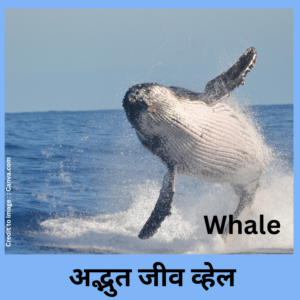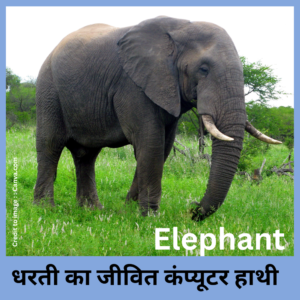Kudremukh National Park, located in the heart of Karnataka’s Western Ghats, is one of India’s richest biodiversity hotspots. Famous for its verdant hills that resemble the face of a horse, this park holds the prestigious status of a UNESCO World Heritage Site. “Kudremukh National Park” article explores its wildlife, trekking trails, environmental importance, and tourism appeal in a question-answer format. Whether you’re a nature lover, a trekker, or an environmental enthusiast, this guide will give you everything you need to know about Kudremukh National Park.
What is Kudremukh National Park?
Kudremukh National Park is a pristine tropical rainforest area located in the Chikkamagaluru district of Karnataka, India. The word “Kudremukh” means “horse face” in Kannada, a name inspired by the distinctive shape of one of its mountain peaks that resembles a horse’s profile. Spanning over 600.57 sq. km, it’s the second-largest protected wildlife area in the Western Ghats and a significant part of the UNESCO-designated Western Ghats World Heritage Site.
Why is Kudremukh National Park famous?
Kudremukh is renowned for:
Kudremukh National Park is dense and evergreen forests.
Being home to endangered species like the Lion-tailed Macaque
Hosting the Kudremukh Peak, a popular trekking destination
Its unique shola-grassland ecosystem
Being a crucial tiger and elephant conservation zone under Project Tiger and Project Elephant
Where is Kudremukh National Park located?
Kudremukh National Park is situated in the Chikkamagaluru district of Karnataka, bordering the Udupi and Dakshina Kannada districts. It lies approximately 350 km from Bangalore and is easily accessible via Mangalore, which is around 100 km away.
What wildlife can be spotted in Kudremukh National Park?
Kudremukh National Park boasts a rich of flora and fauna, including:
Mammals: Lion-tailed macaques, Malabar civets, tigers, leopards, wild dogs, gaurs, barking deer
Birds: Malabar trogon, great hornbill, paradise flycatcher, and the Nilgiri wood pigeon
Reptiles and Amphibians: King cobra, pit viper, and endemic frog species
Flora: Medicinal plants, orchids, and dense forest canopies
Is Kudremukh National Park a good trekking destination?
Yes! Kudremukh is top trekking destinations, situated in South India. The Kudremukh Peak trek (6 km one way) offers:
Stunning views of rolling hills
Mist-laden trails and grasslands
Challenging but rewarding terrain
Once connect deeply with nature at Kudremukh National Park.
Trekking here is only permitted with forest department permission and local guides.
Kudremukh National Park Tour Plan, Best Time to Visit & Travel Guide :
Eco-tourism lovers, Nature lover , Zen Z, adventure seekers, and nature photographers or journalist mostly visit at Kudremukh National Park . Here’s your complete tour plan, best time to visit, and travel and stay options categorized by budget.
Best Month or Time or Period to Visit Kudremukh National Park :
The ideal month or time to visit Kudremukh National Park is “ October to May” every year . This period offers:
Pleasant weather for trekking and wildlife spotting
Clear skies and lush greenery
Avoid visiting in the monsoon (June to September), as heavy rainfall can lead to slippery trekking trails and leech infestations.
How to Reach Kudremukh National Park
✈️ Nearest Airport to Kudremukh National Park:
Mangalore International Airport (IXE) – Approximately 100 km away
Direct flights are available from major cities like Mumbai, Delhi, Bengaluru, and Chennai.
Taxi/Cab services available to Kudremukh from the airport
🚌 Nearest Bus Stand:
Kalasa Bus Stand – About 10 km from Kudremukh town
Karkala Bus Stand – Around 50 km away
Regular KSRTC and private buses run from Mangalore, Chikkamagaluru, and Udupi
From Kalasa, local jeeps and taxis can take you to the park area
🚘 Road Connectivity:
From Bangalore: 330 km via NH75 (Approx. 7–8 hours)
From Mangalore: 100 km via Karkala–Kalasa route (Approx. 3 hours)
From Chikkamagaluru: 100 km (Approx. 3 hours)
Suggested 3-Day Kudremukh National Park Tour Plan
Day 1: Arrival & Local Exploration
Arrive in Kalasa or Kudremukh town
Check-in to homestay or hotel
Visit Hanuman Gundi Waterfalls
Enjoy local Malnad cuisine
Day 2: Kudremukh Peak Trek
Start your adventure early morning and trek to Kudremukh Peak (6 km one way)
Forest department permission & guide is mandatory
Carry snacks, water, trekking shoes
Return by evening, rest
Day 3: Nature Trail & Departure
Visit Lakya Dam (outside core area)
Optional visit to Gangamoola Hill (source of 3 rivers)
Shop local spices/honey
Depart for your next destination
Stay or Hotel or Stay Home or Dormitory Options near Kudremukh National Park :
✅ Premium Hotels & Resorts (₹3500–₹8000/night)
These provide luxurious nature-based stays with modern amenities:
- Silent Valley Resort, Kalasa – Luxury stay with forest views and organic food
- RiverSide Homestay, Samse – Premium riverside rooms, authentic cuisine
- Upasana Retreat – Yoga and meditation-based eco-luxury stay
✅ Medium Budget Hotels (₹1500–₹3500/night)
Ideal for families or small groups:
- Thangaali Home Stay, Kalasa – Mid-range homely comfort with Malnad meals
- Nature INN Resort, Samse – Well-rated for group stays
- Hoysala Homestay, Kudremukh Town – Clean rooms, good food, nature view
✅ Budget/Average Stay Options (₹700–₹1500/night)
Suitable for solo travelers, students, or backpackers:
- Sri Kalasa Lodge, Kalasa – Budget-friendly, basic amenities
- RNS Residency, Karkala – Good option for short stays en route
- Vishnu Lodge, Kudremukh Town – Economical and decent
✅ Dormitory & Group Stay Options
Great for large student groups, trekkers, and NGOs:
Forest Department Dormitory (Kudremukh) – Basic facility for groups (pre-booking required)
Samse Youth Hostel – Offers affordable beds, common washrooms
Private Group Stay Cottages – Available on request with local travel agents
Tour & Travel Facilities near Kudremukh National Park
Trekking Permits & Guides: Get your trekking permits and guide from Forest Office at Kudremukh or Kalasa as per your tour schedule .
Local Travel Agents: Offer custom eco-tour packages with guide and food
Taxi Services: Available at all important place like Karkala, Kalasa, and Mangalore
Bike Rentals: Available at Chikkamagaluru and Mangalore for adventure seekers
Eco-Tour Packages: 2N/3D packages include transport, food, trekking, and stays (₹2500–₹8000 per person depending on category)
Important Travel Guidelines
Always take permission from the Forest Department before trekking
Hire local guides – they know the forest trails and safety measures
Do not litter inside the forest or disturb wildlife
Carry reusable water bottles, avoid plastic bottles, umbrella or rain coat for rain , and a small first aid medical kit.
Prakriti Darshan- Nature and Environment Magazine Respect tribal/local communities and their space
❌ Avoid using plastic and playing loud music in eco-sensitive areas
❌ No campfires or night camping in restricted forest zones
Are there accommodation and stay options near Kudremukh National Park?
Yes, visitors can find:
Eco-resorts and homestays in Kalasa, Samse, and Kudremukh town
Forest guest houses managed by the Karnataka Forest Department
Basic camping facilities near trekking routes (with prior permission)
Why is Kudremukh National Park important for conservation?
Kudremukh is a crucial ecological zone, safeguarding:
Endangered Western Ghats species
Vital river systems like Tunga, Bhadra, and Nethravathi
Carbon-rich forests contributing to climate regulation
It has also played a central role in environmental activism, particularly against mining that once threatened its biodiversity.
Frequently Asked Questions (FAQ)
Is Kudremukh National Park open all year?
No. It’s mostly open from October to May. Trekking during the monsoon is generally restricted.
Do I need permission to trek in Kudremukh National Park?
Yes. You must obtain prior permission from the forest department at Kudremukh or Kalasa.
Is camping allowed inside the park?
Camping is restricted to specific areas with official permits and guides.
Are private vehicles allowed inside the park?
Limited entry is allowed up to designated points. Trekking paths are to be covered on foot.
Can I visit with children or elderly people?
Yes, but trekking might be difficult for them. However, the scenic drive and local villages are still enjoyable.
Summary
Kudremukh National Park is an important natural place its more than just a wildlife sanctuary having a lot of adventure , trekking experience or wild life —it’s a celebration of nature’s raw beauty. From biodiversity and trekking adventures to conservation stories, it offers an unforgettable eco-tourism experience. By exploring this majestic destination responsibly, we contribute to preserving one of India’s most valuable natural treasures.
References
- Karnataka Forest Department – https://aranya.gov.in
- UNESCO World Heritage Sites – Western Ghats
- India Biodiversity Portal – Kudremukh National Park Species List
- Trekking Guidelines by Kudremukh Forest Division
- Research papers on Lion-tailed Macaque conservation in the Western Ghats
PRAKRITI DARSHAN-NATURE AND ENVIRONMENT MAGAZINE
Prakriti Darshan is a leading Hindi-language magazine and digital platform dedicated to raising public awareness on vital issues related to nature, biodiversity, climate change, sustainable development, and environmental conservation. This magazine represents a unique blend of science, society, and sensitivity—offering a common platform for researchers, students, NGOs, policymakers, nature lovers, and conscious citizens alike.
With thought-provoking articles, inspiring stories, environmental research, impactful projects, and policy perspectives, Prakriti Darshan is a transformative journey toward a greener and more sustainable future.
Let us come together to protect and preserve our planet for generations to come. 🌿🌍
Join us in our mission to protect and celebrate the planet. 🌏💚
Click for more information
- Visit www.prakritidarshan.com for Free Magazine ,Free membership benefits ,offered price magazine @ Rs.1 or Rs.11 only and more ……
- 🎗️Sponsor Prakriti Darshan Magazine – Support our environment mission.
- 📚 Explore the Environment Magazine – Read our latest and past issues.
- ✍️ Read Editor’s Article or Blog – Insightful thoughts from our editorial desk.
- 🌱 Join Membership – Be part of India’s leading green community.
- 🤝 Become an NGO Impact Story Partner – Share your grassroots impact nationwide.
- 🏢 Become a Company Partner – Showcase your CSR, ESG, or sustainability work.
- 👤 Become an Individual Partner – Volunteer, write, and raise your green voice.
- 📢 Advertise with Us – Reach eco-conscious readers across India.
- Eco Trails Newsletter
- Donate for “Hari Ho Vashundhara & Har school Hariyali “ Plantation campaign Associated Partner NGO :GDSS NGO www.gdssngo.org
BALA DATT SHARMA,
MANAGING EDITOR ,
PRAKRITI DARSHAN-NATURE AND ENVIRONMENT MAGAZINE
- Yamuna River- Lifeline of North India :A Scientific, Agricultural, and Environmental Perspective - July 14, 2025
- Jurassic World Rebirth Breaks Box Office Records : Global Box Office Revenue $1.5 Billion (And rising) Globally with a Roaring Environmental Message - July 14, 2025
- African Elephant: Facts, Types, Scientific Data, and Why Their Survival Matters for Our Planet - July 13, 2025







